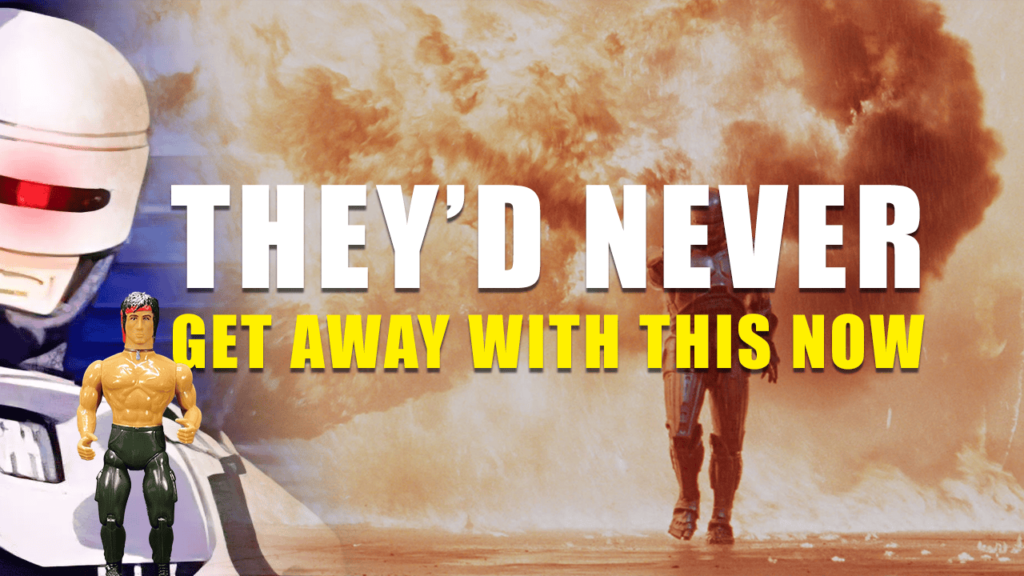By Jonathan Klotz
| Published
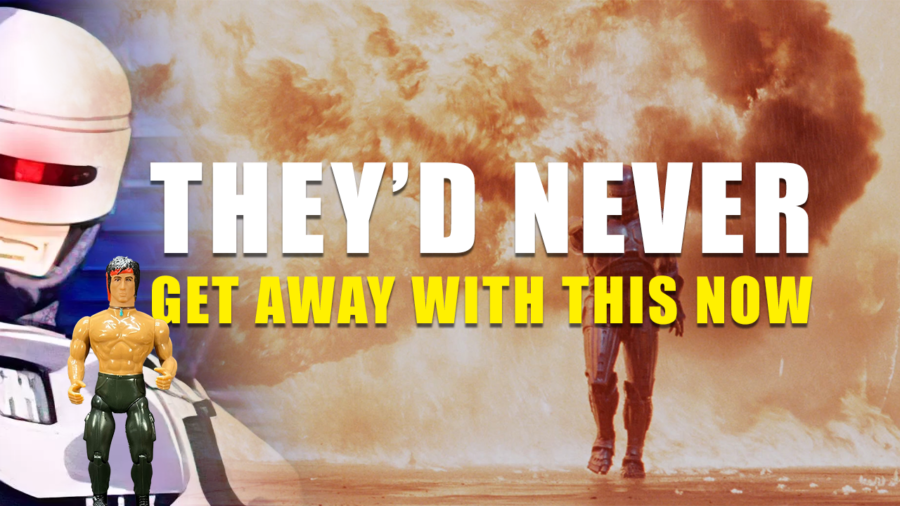
The 80s were a strange time in American culture thanks to a booming economy, Miami Vice, Dallas, and hair metal. In all that oddity, nothing is stranger in retrospect than the period-specific trend of Hollywood taking R-rated movies and sanitizing them for children in the form of Saturday morning cartoons.
RoboCop and Rambo III are not family-friendly films that earn their R-ratings, but they were also found in toy aisles across the country. The Toxic Avenger, a bonkers hard-R sci-fi Troma film, had toys and a cartoon right next to Freddy Kreuger. I’m certain that in some studio, an executive was trying to make a Nightmare on Elm Street cartoon, which would have fit right in during this amazingly awesome yet truly bizarre time.
Kids Love Robots, Even Violent R-Rated Ones
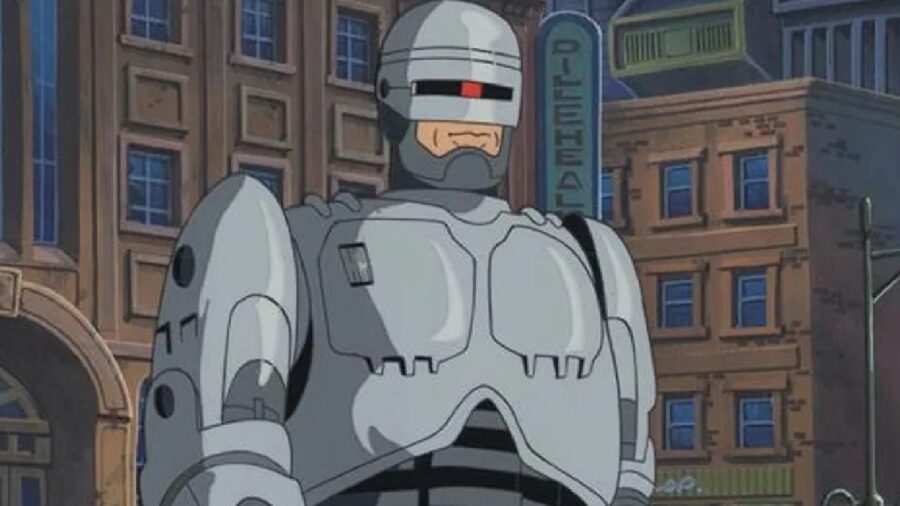
The success of RoboCop paved the way for this trend, thanks to the part-machine, part-human, all-cop appealing to kids. Look at how cool his design is. Like dinosaurs, kids will always love robots. I didn’t see RoboCop until well into the 90s, and even I remember thinking how awesome the character was in the 80s.
Hollywood executives noticed, and following the success of the Kenner Star Wars figures, wanted a piece of the very lucrative “kids begging their parents incessantly that this is the last thing they will ask for” market. The best way to reach kids back then was through Saturday morning cartoons.
We didn’t have YouTube and opening videos, but we did have a four-hour block every Saturday with almost every network airing 30-minute toy commercials. RoboCop became a 12-episode 80s cartoon with no blood, no swearing, and no Kurtwood Smith. It also ended up with an NES video game and a comic book series.
John Rambo: 80s Role Model
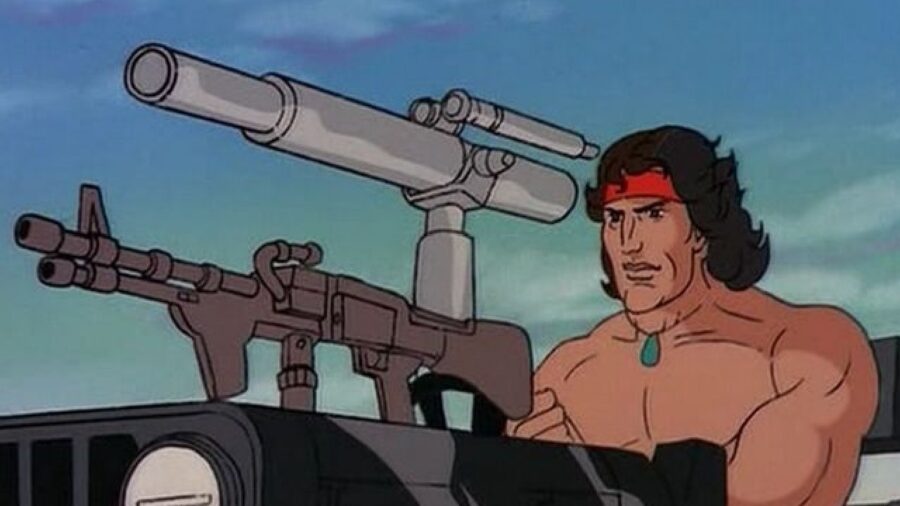
As a kid growing up during this time period, we all knew who John Rambo was, even if we never saw the Sylvester Stallone classic, First Blood. When a character in any other 80s cartoon or movie didn’t say a word and put a red bandana on their head, we knew things just got real and what movie was being referenced. Watching Stallone’s take on a Vietnam vet dealing with PTSD wasn’t required to know who Rambo was and to think that he was the coolest, toughest guy on the planet.
Rambo: The Force of Freedom predates RoboCop by two years, coming out in 1986. It had more in common with one of the most popular 80s cartoons, G.I. Joe, than it did the R-rated Stallone movies. If you go back and watch the 65-episode series today, not only will you be able to see how clearly this was designed to sell cool new toys to kids, but you’ll understand why Stallone was embarrassed by it.
Not Even The Children Were Safe From Police Academy
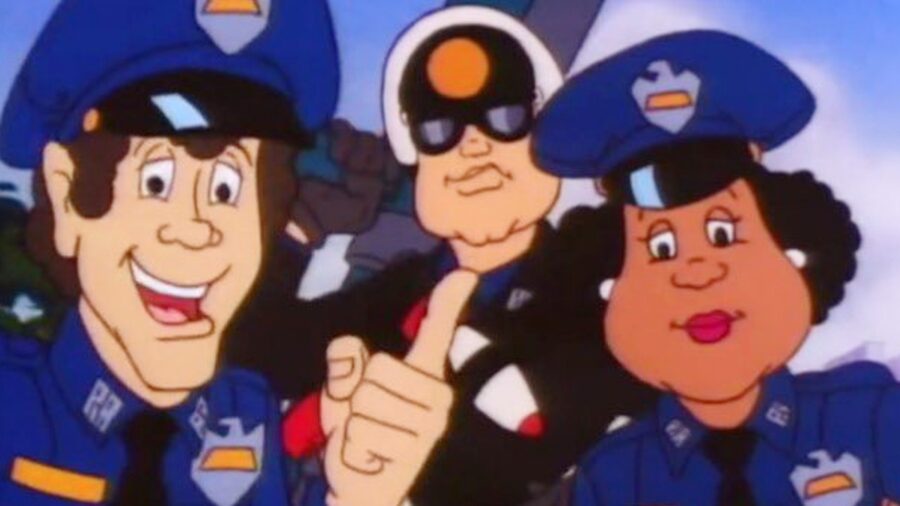
It wasn’t only 80s action movies with larger-than-life heroes that became cartoons. Thanks to the Stonemasons of Springfield making Steve Guttenberg a star, Police Academy launched a 65-episode series in 1988. In what sounds absolutely crazy today, the franchise was releasing a film a year. It was red hot, to the point where even kids on the playground knew about it. However, again, the first film was R-rated and most kids never saw it.
The characters in the cartoon are exaggerated versions of their big-screen counterparts, which carried over to the action figure line. So, if you ever wanted a figure of Bobcat Goldthwait, and what kid didn’t want that, you had the chance to pick up his Zed action figure.
Kids could also use their parent’s money for a police outfit, that came with a plastic club, which they would then promise to never, ever, hit their sibling with. As far as the R-rated movie to 80s children’s cartoon pipeline goes, Police Academy makes the most sense. The movies do have a cartoonish sensibility.
Welcome To Tromaville Little Kids!
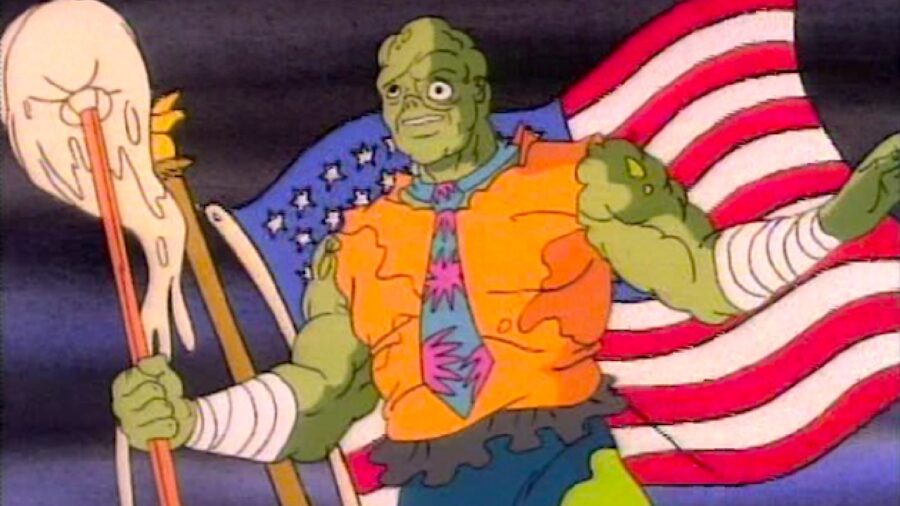
The Toxic Avenger, however, is the most inexplicable of all of the 80s cartoons. It didn’t air until 1990, likely because someone with good sense realized that the Troma cult classic is a grotesque collection of body horror, blood, and guts. Eventually, good sense lost out, and by changing the title to Toxic Crusaders and putting emphasis on the environmental message that lay underneath all of the usual Troma trappings, they forced it to fit in alongside Captain Planet.
Toxie and his pals would go out each episode to defend Tromaville from the Smogulans, proving that the Saturday morning cartoon formula is so simple it works with nearly every property. It doesn’t matter if you swap out the robots and “abnimals” for characters from R-rated movies.
How Spongebob Squarepants Saved Your Kids
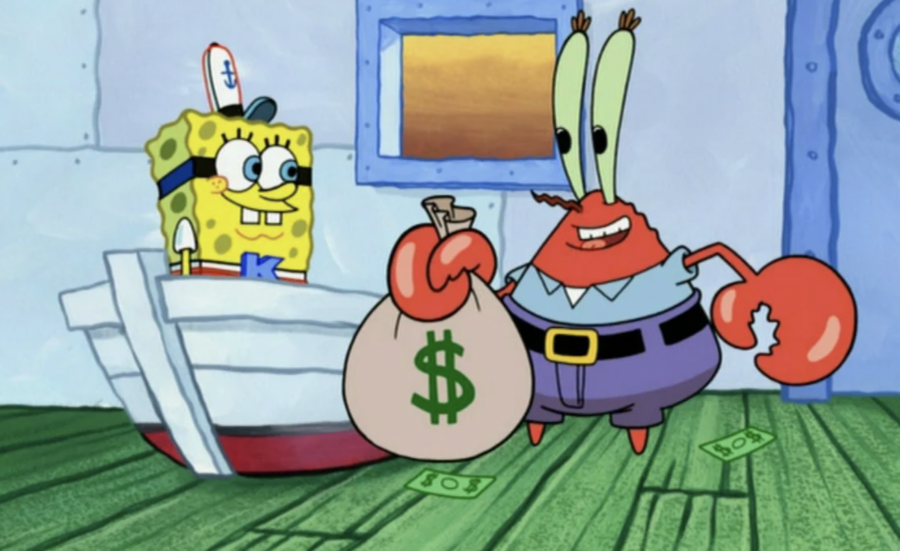
This 80s trend continued well into the 90s, with Conan and Highlander receiving after-school cartoon adaptations, but it died down by the end of the decade, for good. It was ended by the rise of Cartoon Network’s avant-garde style, including shows like Dexter’s Laboratory, Johnny Bravo, the Powerpuff Girls, and the debut of a small cartoon you may have heard of, Spongebob Squarepants.
The success of those shows meant that cartoons were no longer solely commercials to sell toys; they were quality programs designed to keep kids hooked to the screen in order to watch commercials that would then try and sell them toys.
Imagine if Bad Boys: Ride or Die or Gladiator II were adapted into cartoons today, with toy lines aimed at kids. Now picture the absolute firestorm of criticism that would be launched on social media over marketing R-rated movies to children. To be fair, it’s not like people in the 80s thought it was great. It was still controversial in the 80s when these cartoons debuted, but times were different and their outcry had fewer places to find a voice.
Today, most of these bizarre R-rated movie to cartoon adaptations aren’t available on streaming, though Toxic Crusaders is on Tubi, and Police Academy is on Plex.
